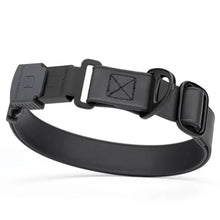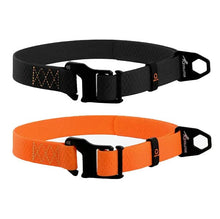Will Your Dog Protect You? Let's Find Out

If you're expecting a straight answer, you will be disappointed with this article. If you want to know the truth and get a better picture into what protection is, how it works, and what's going through a dog's mind when they feel threatened, then you've come to the right place!
The first thing that needs to be asked is: What does protection mean to you? A dog that barks to alert you, but clearly is disinterested in engaging? A dog that barks and seems interested in engaging to people who aren't well versed on body language? A dog that'll bite, but back down if confronted? Or a dog that'll bite and actually fight a bad guy, even if it seems they're on the losing side?

A dog that barks to alert you is just about every dog on the planet. If this is what protection means to you, you have a dog that'll protect you in your definition of the word.
A dog that will bark and appear like he wants to engage in a fight is also fairly common. It's a threat display that many dogs will do when threatened. Lots of deep, whooping barks, hackles raised, eye contact, standing their ground or maybe even advancing. A dog doing this is hoping his bluff won't be called and is trying to convince what he perceives as a threat to leave. He may even give chase if the threat starts to run. If your dog will do this, chances are you've seen him do it before. Again, most dogs display this natural behavior when confronted by a stranger in their home or yard. If this is what protection means to you, you have a protection dog.
A dog that will bark, and bite, but not fight. This one is difficult to distinguish. Most dogs who do this are fear biters, which isn't a good thing unless you own a junkyard and are completely fine with any trespasser or stranger being bitten. It's not so great when it's a house dog and you can't have guests over, or the grandkids, and have to have signs everywhere so the meter reader doesn't end up suing you.

There's a minority percentage of dogs who are completely confident, good dogs, who get along with everyone, who when they feel threatened will bite to defend themselves and territory for the right reasons. They are rare, and finding one who'll do more than a nip and chase is even rarer. At this point, we're talking about the chances of finding treasure if you go snorkeling at the beach. The odds are slim, but not quite none.
A dog who will actually bark, bite, and fight someone to defend himself and territory. When we get here, we're talking almost exclusively working line German Shepherd Dogs, Rottweilers, Dutch Shepherds and Malinois. A few other breeds, perhaps, but finding an individual capable of the work is much more difficult in breeds that weren't just mentioned. We welcome owners of all breeds to read these articles, because in the end, all dogs are dogs. The only difference is their drive and temperament. But, since this is a GSD focused page, we'll stick to talking about them specifically.

An American, British, or Canadian dog with long established lines in those countries is the least likely to have the drive and temperament to do this level of "protection." Why? Because Americans, Brits, and Canadians never cared much about working. They wanted good pets and never specifically bred for drive and bomb proof nerves, so they simply do not have those traits in sufficient levels to do this kind of work. Is there a few hiding out there at someone's house that nobody knows about? I'm sure there is. But I'm just as sure that somebody, somewhere will hit the lottery eventually. Dogs with high drive and bomb proof nerves are a handful. The founders of these lines didn't want a handful, they wanted a friend.
European Show Line dogs are somewhere in the lower end of likely to be capable of this kind of "protection." European registries in the countries they're from require a protection dog title or a herding title. These dogs all have to at least have the drive and nerve to pass these tests before they can be bred, thus insuring that their offspring do have a level of drive and nerve as well. But they weren't specifically bred to work, so expecting them to be as likely or capable of the same level of work as a dog labeled "Working Line" isn't asking a lot. It's asking too much. Nevertheless, there are much more dogs of this type who are capable of the work than American/British/Canadian lines.

Finally, we have Working Line dogs. These dogs are bred purposely and specifically for work, and have been since 1899 when the German Shepherd Dog was first founded. So obviously, all of these dogs of this lineage will bite, and fight a bad guy to protect you. Just kidding. Without training, almost none of them would. Even with expert training, far less than half will become a dog that has what it takes to really fight off an attacker who means to do harm.
Police K-9 candidates are the ones who pass an initial selection, and even still, a sizable percentage of them washout of K-9 programs. If this is what your idea of protection is, there's almost no chance your dog is this dog. And if your dog is capable of this, he still won't do this level of "protection" without tons of man-hours of training. We're talking $12,000 worth in training, and this is the bare minimum. And your best bet of getting a dog that will offer this kind of protection isn't to gamble on buying a $2,500 puppy, which again, is the minimum you'll pay. But to buy a pre-selection tested young adult, which is around $8,000 on top of the $12,000 of training. If you expect your dog to provide this level of "protection" for a penny less than $20,000, you're expecting way too much from your dog. And it isn't fair to him. If this is what you consider protection, you didn't need to read this article to find out if your dog will protect you. You specifically sought out this $20,000+ investment that's good for about 8-10 years and have worked your dog before.

Now that we've answered some questions, is having a professionally trained protection dog worth $2,000 a year for 10 years worth it? Especially when you have to pay that money upfront? Let us know what you think! We hope we didn't hurt anyone's feelings with this one. This is from a collective of professional trainers who are experienced with this kind of work.
If you found this article informative, leave a like, give it a share, and tag your friends and family.
You may also like: Protection Training, What You Need To Know






















